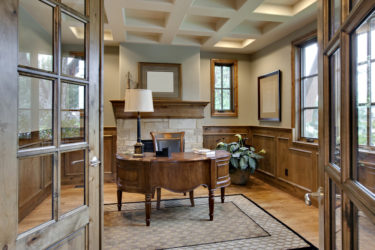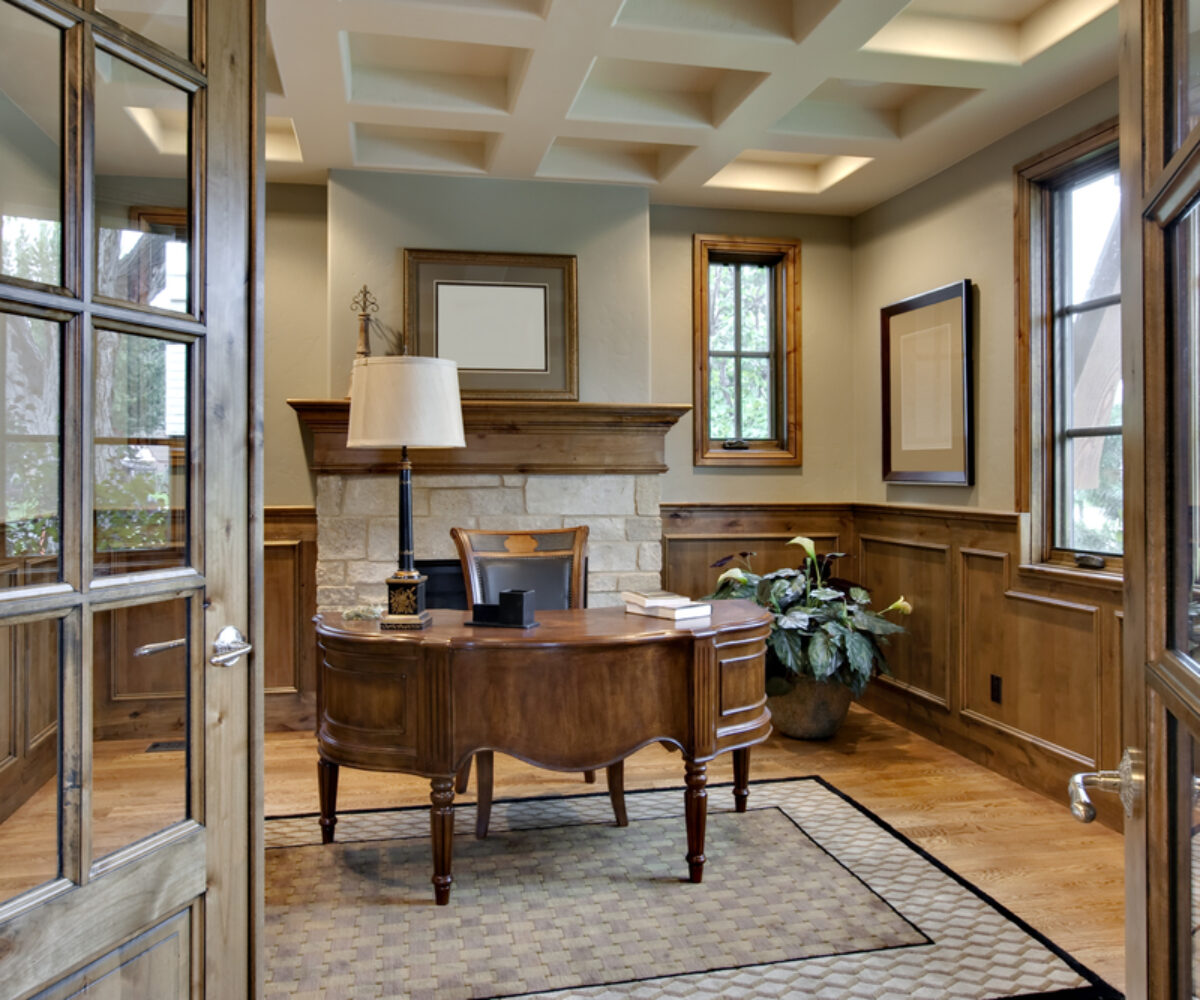8 Tips for Setting Up an Office in Your Basement
 More and more people require a home office for occasional commute-free days or as a full-time workspace. If you don’t have a spare room to use in the main part of your home, incorporating an office into the design of your basement finish or remodel project may be something you’ll want to think about. To ensure that your basement home office is a comfortable and productive space, consider these eight design essentials.
More and more people require a home office for occasional commute-free days or as a full-time workspace. If you don’t have a spare room to use in the main part of your home, incorporating an office into the design of your basement finish or remodel project may be something you’ll want to think about. To ensure that your basement home office is a comfortable and productive space, consider these eight design essentials.
1. Location
The ideal location of a home office depends in large measure upon the purpose for which it will be used. If the office space is to serve as the home’s “command central,” easy access may be more important than isolation and privacy. However, if the office is intended to be a dedicated, professional work space, separation from the daily activity of the rest of the household is crucial. Decide whether what’s needed is simply a desk in an open area or a more traditional office set-up in a separate room with a door.
2. Lighting
Home offices benefit from natural lighting — the more the better, as studies have shown natural light improves productivity and results in less eye strain and fatigue. However, this can be a challenge in a basement home office. If possible, choose a location with windows. If available natural light is non-existent or is simply not adequate, incorporate sufficient supplemental lighting. Hue is also important. Warm hues are calming while cool hues increase productivity. Consider LED task lighting with adjustable color temperature settings for the greatest flexibility.
3. Privacy
As mentioned above, if your work requires concentration and privacy, as well as an overall professional atmosphere for phone/video calls or in-person meetings, locate your home office away from the noise and distraction of the household. Finished basements can often accommodate this requirement fairly easily because they are separate from the main living areas of the home. Consider dedicating a basement room for the office to maximize privacy while keeping the rest of the space available for other uses. If a separate room is not possible, a screen or room divider can add a sense of privacy. A “Do Not Disturb” sign or other visual cue alerts family members to respect the space during working hours.
4. Sound insulation
Sound insulation can be an immense help in minimizing distraction from noise outside your home office. Sound dampening insulation, such as Owens Corning Fiberglass QuietZone, in the space between the basement ceiling joists can prevent sound from the main level from permeating your workspace. Sound-proofing drywall, such as QuietRock can also be used on the ceiling.
5. Layout / Organization
Take the time to think about all the tasks that will need to be accomplished in your office and how to maximize comfort when performing those tasks. How much space is needed? What types of work surfaces and storage spaces will keep materials organized and easily accessible? What environment and furnishings will allow you to be the most productive and create the least amount of stress?
6. Equipment & Technology
Home offices have limited space so choose equipment wisely. Carefully weigh the convenience and necessity of having certain technology easily accessible against the cost and space it will take up. What do you absolutely need to do your work efficiently and effectively on a daily basis and what can you manage without? For example, WiFi and a fast, reliable internet connection is often a necessity for today’s home offices. However, an all-in-one desktop printer/copier may suffice in place of a full-size color copier.
7. Ergonomics & Comfort
Sitting at a desk and working on a computer for hours at a time can cause excessive strain and discomfort that affects one’s overall health and well-being. Choose a desk and chair set-up that provides good support and comfort while positioning you correctly to minimize strain and injury. Consider including a standing desk (there are simple, inexpensive models) and alternate between sitting and standing throughout the day.
8. Storage
Clutter is perhaps the greatest impediment to an efficient home office. Eliminate extraneous items and limit the amount of space given to items that are only used rarely. Be thoughtful about decorative items that personalize your space; they should make your work area pleasant to be in without being in the way.
Storage options abound. Consider how you work as well as what needs to be off your desk but close-by and easy to access. Choose filing and storage systems that are easy to maintain to keep your work area organized and limit the time you spend searching for needed items.

